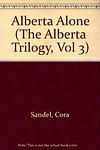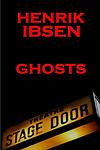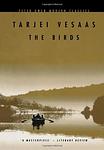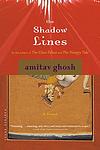The Greatest Norwegian, Indian "Fiction" Books Since 1900
Click to learn how this list is calculated.
This list represents a comprehensive and trusted collection of the greatest books. Developed through a specialized algorithm, it brings together 300 'best of' book lists to form a definitive guide to the world's most acclaimed books. For those interested in how these books are chosen, additional details can be found on the rankings page.
Genres
Countries
Date Range
Reading Statistics
Click the button below to see how many of these books you've read!
Download
If you're interested in downloading this list as a CSV file for use in a spreadsheet application, you can easily do so by clicking the button below. Please note that to ensure a manageable file size and faster download, the CSV will include details for only the first 500 books.
Download-
1. Midnight's Children by Salman Rushdie
The novel tells the story of Saleem Sinai, who was born at the exact moment when India gained its independence. As a result, he shares a mystical connection with other children born at the same time, all of whom possess unique, magical abilities. As Saleem grows up, his life mirrors the political and cultural changes happening in his country, from the partition of India and Pakistan, to the Bangladesh War of Independence. The story is a blend of historical fiction and magical realism, exploring themes of identity, fate, and the power of storytelling.
-
2. The God of Small Things by Arundhati Roy
This novel is a poignant tale of fraternal twins, a boy and a girl, who navigate through their childhood in Kerala, India, amidst a backdrop of political unrest and societal norms. The story, set in 1969, explores the complexities of their family's history and the tragic events that shape their lives. Their mother's transgression of caste and societal norms by having an affair with an untouchable leads to disastrous consequences, revealing the oppressive nature of the caste system and the destructive power of forbidden love. The novel also delves into themes of postcolonial identity, gender roles, and the lingering effects of trauma.
-
3. A Suitable Boy by Vikram Seth
Set in 1950s India, this epic novel follows the story of four families over a period of 18 months, focusing primarily on the young woman Lata and her mother's quest to find her a suitable husband. The narrative explores the political, social, and personal upheavals in a newly independent India, struggling with its own identity amidst the backdrop of a society grappling with religious tensions, land reforms, and the shaping of a modern democratic state. Lata's journey is an exploration of love, ambition, and the weight of familial duty.
-
4. Kristin Lavransdatter by Sigrid Undset
Set in 14th century Norway, "Kristin Lavransdatter" follows the life of its titular character from her childhood, through her tumultuous and passionate marriage to Erlend Nikulausson, to her life as a mother and eventual widow. The narrative explores Kristin's struggles with faith, societal expectations, and personal desires, offering a vivid portrayal of medieval Scandinavian life along the way. Despite the many hardships she faces, Kristin remains a strong and resilient woman, embodying the spirit of her time.
-
5. A Fine Balance by Rohinton Mistry
"A Fine Balance" is a poignant narrative set in India during the 1970s, a time of political turmoil and upheaval. The plot revolves around four diverse characters - a widow, a young student, and two tailors - who are brought together by fate. Through their interconnected lives, the book explores themes of caste, poverty, political corruption, and the human spirit's resilience. It offers a profound exploration of the delicate balance that sustains life amidst adversity.
-
6. Growth of the Soil by Knut Hamsun
"Growth of the Soil" is a novel that follows the life of a man who leaves his nomadic lifestyle to become a pioneer farmer in the Norwegian wilderness. The narrative traces his journey from solitude to building a family and a thriving farm, showcasing his deep connection with the land and the cyclical nature of life. The book also explores the tension between traditional rural life and modernity, as external forces such as industrialization and societal change begin to impact the protagonist's simple existence.
-
7. Nectar in a Sieve by Kamala Markandaya
"Nectar in a Sieve" is a tale of an Indian peasant woman named Rukmani who endures the hardships of rural poverty, natural disasters, and personal tragedy, while trying to raise her children and maintain her marriage. The book explores themes of love, hope, and the strength of the human spirit against the backdrop of a rapidly changing India. Despite the constant struggles, Rukmani never loses her faith and hope, symbolizing the resilience and strength of ordinary people in the face of adversity.
-
8. Sophie's World: A Novel About the History of Philosophy by Jostein Gaarder
"Sophie's World" is a unique and intriguing novel that intertwines the narrative of a young girl named Sophie with a comprehensive history of Western philosophy. Sophie begins receiving mysterious letters from an unknown philosopher and gradually becomes engrossed in the world of philosophy. The book uses Sophie's journey to explore philosophical concepts and theories, from ancient to modern times, in an accessible and engaging way, making it an excellent introduction to the subject for readers of all ages.
-
9. Home and the World by Rabindranath Tagore
This novel is a political and philosophical exploration set in early 20th century India during the country's struggle for independence. It revolves around three main characters: a nobleman, his wife, and his friend, a fervent nationalist. The story unfolds as the wife, initially confined to the inner quarters of their home, begins to question her societal boundaries and the idea of nationalism after meeting her husband's friend. The narrative delves into the complexities of love, freedom, and the concept of home and world, set against the backdrop of the Swadeshi movement, a part of the Indian independence movement against British rule.
-
10. House with the Blind Glass Windows by Herbjørg Wassmo
"House with the Blind Glass Windows" is a poignant tale of a young girl growing up in Norway during the 1950s. The narrative explores her struggles with family secrets, abuse, and the oppressive nature of her small, rural community. The protagonist's journey towards understanding and overcoming her traumatic past forms the crux of the story, which is set against the backdrop of post-war Europe.
-
11. Heat and Dust by Ruth Prawer Jhabvala
"Heat and Dust" is a novel set in two different time periods in India, exploring themes of colonialism, gender roles, and cultural clash. The story alternates between the 1920s, following the scandalous life of Olivia, an English colonial wife who falls in love with an Indian prince, and the 1970s, where her step-granddaughter journeys to India to uncover the truth about Olivia's life and her own identity. The narrative exposes the complexities of love, culture, and identity in the context of British colonial rule and post-colonial India.
-
12. Untouchable by Mulk Raj Anand
"Untouchable" is a novel that explores a day in the life of a young Indian man, Bakha, who belongs to the lowest caste, the Untouchables. The narrative follows Bakha's experiences of extreme discrimination and humiliation as he performs his job as a latrine cleaner. Despite the harsh realities of his life, Bakha dreams of a better future and is fascinated by the modern world and British rule. The novel provides a poignant critique of the caste system and the social inequalities in India.
-
13. Clear Light of Day by Anita Desai
"Clear Light of Day" is a novel set in Old Delhi, which explores the dynamics of the Das family. The story shifts back and forth in time, reflecting on the lives of siblings Bim, Raja, Baba, and Tara, and their relationships with each other and their aunts. The narrative delves into themes of memory, time, and decay, as well as the political upheaval of the Partition of India. The novel is a poignant study of family relationships, personal change, and loss.
-
14. All about H. Hatterr by G. V. Desani
This novel is a unique blend of Eastern philosophy and Western literary technique, following the adventures of its protagonist, a British-educated Indian everyman, as he navigates the complexities of life. The narrative is filled with humor, satire, and linguistic playfulness, as the protagonist interacts with various eccentric characters and experiences numerous absurd situations. The book is a critique of both British colonialism and traditional Indian society, offering a distinctive and insightful perspective on the human condition.
-
15. The Alberta Trilogy by Cora Sandel
"The Alberta Trilogy" is a series of three novels that follow the life of Alberta Selmer, a young woman growing up in a small Norwegian town in the early 20th century. The trilogy explores Alberta's struggle with societal expectations, her pursuit of independence and her journey to becoming a painter. Set against the backdrop of a harsh Norwegian landscape, the series highlights the protagonist's struggle with poverty, her relationships, and her exploration of her identity and place in the world.
-
16. Swami and Friends by R. K. Narayan
Set in the fictional town of Malgudi in South India, the book follows the story of a ten-year-old boy named Swami and his adventures with his friends. The narrative encapsulates the trials and tribulations of school life, family relationships, and friendships in a traditional Indian context. The book is a charming exploration of a child's life in a small town, filled with humor and poignant moments.
-
17. The White Tiger by Aravind Adiga
"The White Tiger" is a darkly humorous novel set in modern-day India that explores the country's class struggle through the eyes of an ambitious and cunning protagonist. Born in a poor village, he moves to Delhi to work as a chauffeur for a rich family. He eventually breaks free from his life of servitude by committing an act of shocking violence, and uses his newfound freedom to become a successful entrepreneur in Bangalore. The story, told through a series of letters written to the Chinese Premier, is a scathing critique of India's social and economic disparities, and the corruption that permeates all levels of society.
-
18. The River Sutra by Gita Mehta
"The River Sutra" by Gita Mehta is a captivating novel that explores the intertwining lives of various characters along the sacred river Narmada in India. Through vivid storytelling and rich descriptions, the book delves into themes of spirituality, love, and the search for meaning in life. As the characters embark on journeys of self-discovery, the river serves as a powerful metaphor for the flow of life and the interconnectedness of all beings. With its lyrical prose and thought-provoking narrative, "The River Sutra" offers a profound exploration of the human experience and the timeless wisdom of ancient traditions.
-
19. The Great Indian Novel by Shashi Tharoor
This book is a satirical take on Indian politics and history, cleverly intertwined with characters and events from the epic Mahabharata. The narrative presents a parallel between the two, with the characters in the novel mirroring significant figures from India's political scene during the Independence and post-Independence era. The book is a humorous yet thought-provoking critique of Indian society and politics, offering a unique blend of myth, history, and satire.
-
20. The Guide by R. K. Narayan
"The Guide" follows the life of Raju, a corrupt tour guide who, through a series of events, ends up in prison, and later becomes a spiritual guide. After his release from prison, Raju is mistaken for a holy man by villagers and gets involved in resolving a drought problem by fasting. The novel explores themes of life, death, and redemption, as well as the complex nature of human relationships and the power of belief.
-
21. Giants in the Earth by Ole Edvart Rolvaag
"Giants in the Earth" is a historical novel that chronicles the story of a Norwegian pioneer family's struggles with the land and the elements of the Dakota Territory as they try to make a new life in America. It is a profound and accurate depiction of the trials, tribulations, successes, and failures of pioneer life, emphasizing the harsh realities of adapting to a new environment. The novel explores themes of man versus nature, cultural displacement, and the pursuit of the American Dream.
-
22. Selected Plays of Henrick Ibsen by Henrik Ibsen
This compilation includes a selection of plays by a renowned Norwegian playwright, who is often referred to as the father of realism. The collection showcases his talent for exploring complex human emotions, societal expectations, and moral dilemmas. The plays often feature strong female characters, a rarity for the time, and challenge the norms of the 19th-century society, making them timeless and relevant even today.
-
23. The Inheritance of Loss by Kiran Desai
This novel explores themes of love, loss, and the human struggle for identity amidst political unrest. Set in India during the Nepalese movement for an independent state, the narrative follows the lives of a retired judge living in the Himalayas, his granddaughter, and his cook. As the political situation worsens, each character must grapple with their own personal issues, including the judge's regret over his failed marriage and his granddaughter's struggle to find her place in the world. The cook, meanwhile, dreams of a better life for his son in the United States. The narrative weaves together these individual stories to create a poignant tapestry of human resilience in the face of adversity.
-
24. The Birds by Tarjei Vesaas
"The Birds" is a poignant story about Mattis, a mentally challenged man living in rural Norway who struggles to fit into society. He lives with his sister, who is his only caretaker and connection to the outside world. Mattis's life changes when he becomes fascinated by a pair of rare birds that decide to nest near his home. The arrival of these birds and a subsequent encounter with a lumberjack disrupt the quiet routine of his life, leading to a series of events that force him to grapple with his place in the world.
-
25. The Shadow Lines by Amitav Ghosh
"The Shadow Lines" is a novel that explores themes of memory, family, and national identity through the eyes of a young boy and his experiences growing up in Calcutta, India. The narrative is framed by two major historical events: the 1964 Dhaka Riots and the 1942 World War II. The protagonist's relationships with his family and his personal experiences are juxtaposed with these events, highlighting the complexities of identity, memory, and the lasting impacts of historical events on individual lives. The novel also delves into the arbitrary nature of national borders and the shadow lines they draw between people and their histories.
Reading Statistics
Click the button below to see how many of these books you've read!
Download
If you're interested in downloading this list as a CSV file for use in a spreadsheet application, you can easily do so by clicking the button below. Please note that to ensure a manageable file size and faster download, the CSV will include details for only the first 500 books.
Download























